
Find Help
More Items From Ergsy search
-

What are the financial implications of water loss for the UK?
Relevance: 100%
-

What are the financial implications of the US leaving WHO?
Relevance: 56%
-

How significant is the water loss problem in the UK?
Relevance: 54%
-

What causes water loss in the UK?
Relevance: 53%
-

Are there any government initiatives to tackle water loss in the UK?
Relevance: 51%
-

What measures are being taken to address water loss in the UK?
Relevance: 51%
-

What impact does water loss have on the environment in the UK?
Relevance: 50%
-

What is the role of consumers in reducing water loss?
Relevance: 49%
-

Can individual actions significantly impact overall water loss?
Relevance: 47%
-

How are new technologies helping to reduce water loss in the UK?
Relevance: 47%
-

How much water is lost in the UK through poor infrastructure?
Relevance: 46%
-

Are there penalties for not maintaining water infrastructure?
Relevance: 41%
-
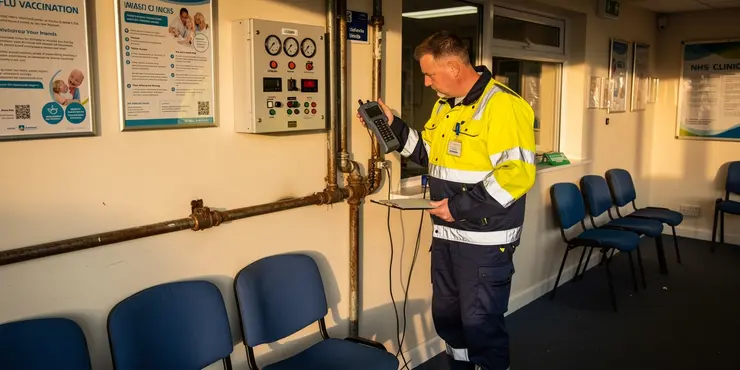
What is the expected timeframe to significantly reduce water loss in the UK?
Relevance: 35%
-

Are water companies responsible for maintaining water infrastructure in the UK?
Relevance: 35%
-

Can weight loss drugs cause dehydration?
Relevance: 34%
-

Do water companies have to update the infrastructure?
Relevance: 34%
-

What are the strategic implications of the US leaving WHO?
Relevance: 33%
-

How do water companies fund infrastructure updates?
Relevance: 32%
-

What is NRW in the context of water management?
Relevance: 32%
-
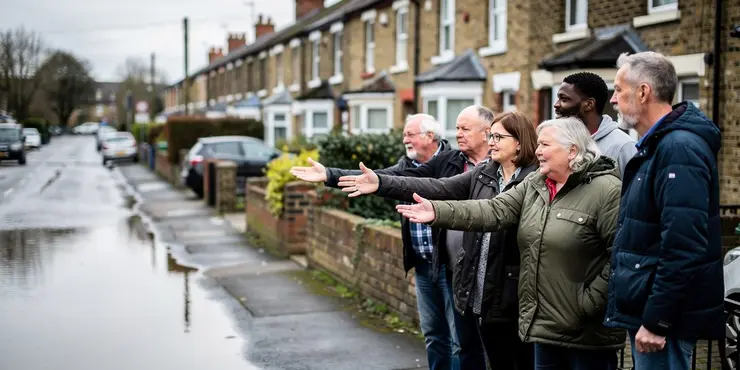
What happens if a water main bursts?
Relevance: 32%
-
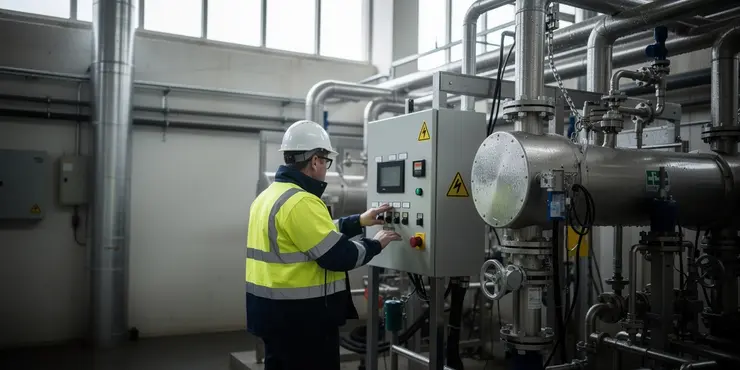
What does water infrastructure maintenance involve?
Relevance: 32%
-
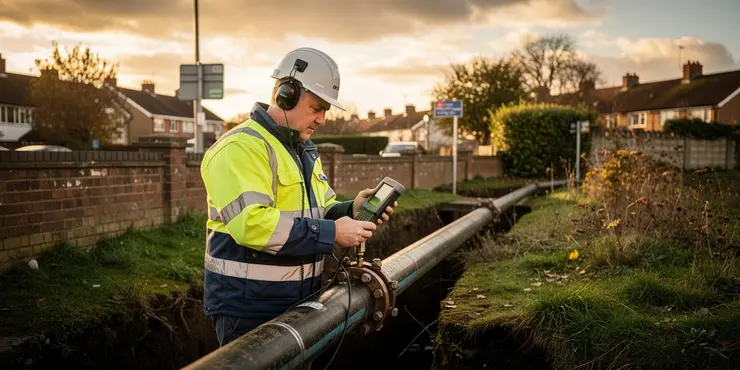
How do water companies detect leaks?
Relevance: 32%
-

How many UK water companies are involved in the refund process?
Relevance: 31%
-
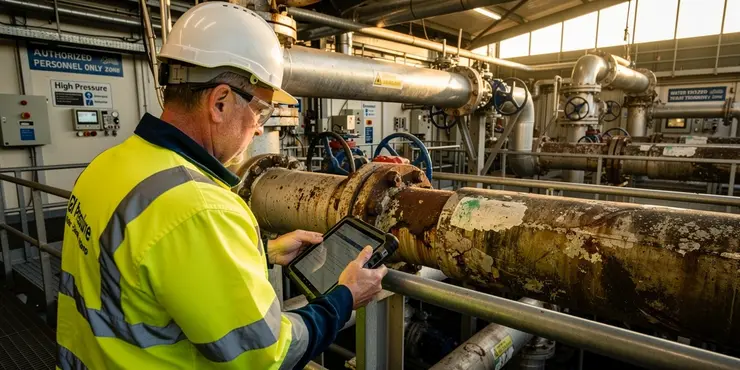
What challenges do water companies face in maintaining infrastructure?
Relevance: 31%
-

Do water companies have long-term infrastructure plans?
Relevance: 31%
-

Are there penalties for water companies besides issuing refunds?
Relevance: 31%
-
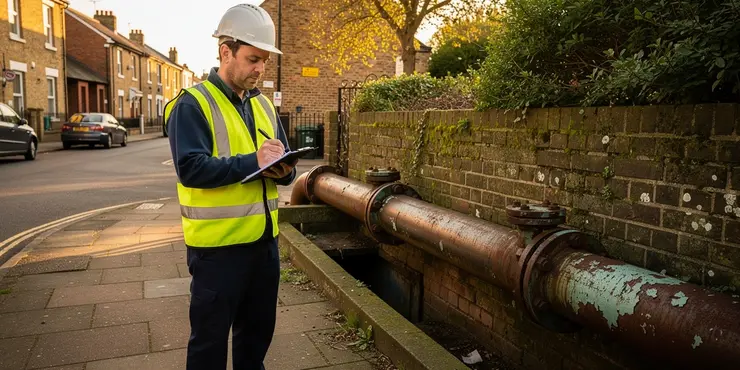
Are water companies responsible to maintain and update infrastructure in the UK?
Relevance: 31%
-

How much is being refunded in total by the UK water companies?
Relevance: 31%
-
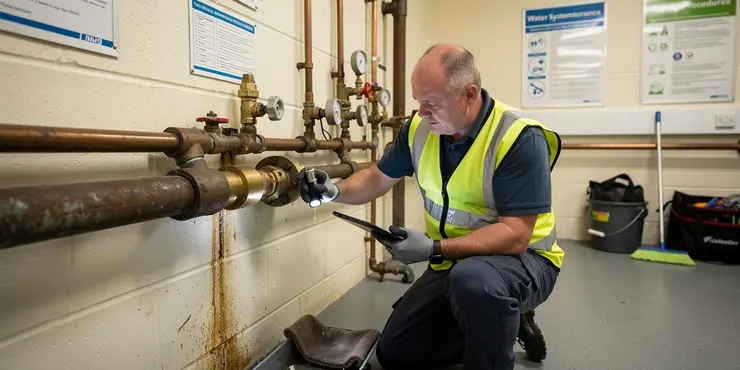
Why is it challenging to fix water leaks in the UK?
Relevance: 31%
-

When will the refunds be issued by the UK water companies?
Relevance: 31%
-

Who regulates the performance and compliance of UK water companies?
Relevance: 31%
-

What criteria were used to determine the refunds for UK water companies?
Relevance: 30%
-

How will refunds affect investments towards improving water infrastructure?
Relevance: 30%
-

First Time Buyer Buy to Let Finance Options. Lending Criteria on Mortgage and Bridging Finance
Relevance: 30%
-

Which UK water companies are going to refund their customers?
Relevance: 30%
-

Are there implications for student loan repayments with 2026 changes?
Relevance: 30%
-

Can a finance broker be liable for mis-selling car finance?
Relevance: 29%
-

How old is the water infrastructure in the UK?
Relevance: 29%
-

How does climate change affect water infrastructure maintenance?
Relevance: 29%
-

Does Thames Water enforce a hosepipe ban more than other water authorities?
Relevance: 29%
Introduction to Water Loss in the UK
Water loss is a significant issue in the UK, impacting both the economy and the environment. This problem is primarily attributed to leakage in water distribution systems, inefficiencies in water use, and other factors such as climate change. Understanding the financial implications of water loss is crucial for policy makers, companies, and consumers alike.
Economic Costs of Water Loss
Water loss affects the UK's economy in several ways. First, the cost of treating and pumping water that is ultimately lost contributes to increased operational costs for utility companies. These costs are often passed down to consumers through higher water bills. Additionally, the UK's water supply infrastructure is aging, which implies that substantial investments are needed to repair and replace old pipes to prevent further losses.
Moreover, when water resources are wasted, the costs associated with finding and developing alternative sources can be significant. This includes the financial implications of constructing new reservoirs or desalination plants, which require substantial capital investment. In an era where public sector budgets are tight, these unnecessary financial burdens can strain resources meant for other essential public services.
Impact on Business and Industry
Industries reliant on substantial amounts of water, such as agriculture and manufacturing, face direct financial risks due to water loss. Reduced water availability can result in higher water procurement costs, negatively impacting operational budgets. For instance, farmers may experience higher costs for irrigation and reduced crop yields, while manufacturing processes dependent on water could face interruptions, affecting productivity and profitability.
Moreover, industries might need to invest in water efficiency technologies or third-party water suppliers to maintain their operations, further adding to their financial burden. Compliance with stricter water regulations also demands spending on technological upgrades and can increase operational costs.
Environmental and Regulatory Challenges
The financial implications extend beyond direct costs. Environmental impacts of water loss include a strain on ecosystems, which can lead to regulatory challenges and potential fines for companies not complying with water management legislation. As awareness of environmental impact grows, so does the pressure on businesses to adopt sustainable practices, which may require financial investments up front.
Increased regulation, motivated by the need to manage water resources sustainably, can lead to higher compliance costs for companies. Enterprises may need to invest in water usage audits, conservation technology, or certifications to align with regulatory demands, which can be financially taxing in both the short and long term.
Conclusion
Overall, the financial implications of water loss in the UK are multifaceted and affect various sectors of the economy. From increased consumer bills due to inefficient water infrastructure to higher operational costs for businesses and the need for substantial investment in new water resources, the economic impact is significant. Addressing these issues requires a coordinated effort by the government, industry, and consumers to invest in water-saving technologies and infrastructure, fostering a sustainable approach to water management.
Introduction to Water Loss in the UK
Water loss is a big problem in the UK. It is bad for both the economy and the environment. The main cause is leaks in the water pipes and using water carelessly. Climate change also makes it worse. It is important for people who make rules, businesses, and people who use water to understand how losing water costs money.
Economic Costs of Water Loss
When water is lost, it costs the UK a lot of money. Treating and pumping water that gets lost is expensive for water companies. They often make water bills higher to cover these costs. The pipes that carry water are very old. Fixing and replacing these pipes costs a lot of money too.
If water is wasted, finding new water sources costs a lot. Building new water storage places or cleaning sea water to make it drinkable is very expensive. The government has limited money, so wasting money on water loss means less money for other important things.
Impact on Business and Industry
Businesses that use a lot of water, like farms and factories, can lose money because of water loss. If there is less water, they might have to pay more for it, which hurts their budget. Farmers may have to pay more for watering crops, and might get less food to sell. Factories might have to stop working if they do not have enough water, which loses money.
Some businesses might need to buy new tools to save water or buy water from others, which costs more. They also need to follow new water rules, which can mean more money spent on new technology to save water.
Environmental and Regulatory Challenges
Water loss also harms nature. This can lead to new rules that make companies pay fines if they waste water. Businesses feel pressure to use water wisely and may need to spend money to do this.
More rules about saving water mean businesses might have to spend money to follow them. They might need to check how they use water, buy new tools to save water, or get special certificates that show they are using water well. All these things cost money now and in the future.
Conclusion
Water loss costs money in many ways in the UK. It makes water bills higher, costs businesses more money, and requires spending on new water sources. To fix this, the government, businesses, and people need to work together. We need to invest in technology that saves water and fix our old water pipes. This will help us manage water better for the future.
Frequently Asked Questions
What are the main causes of water loss in the UK?
Water loss in the UK is mainly caused by leakage in supply systems, inefficient water use, aging infrastructure, and unmetered or inaccurate metering of water.
How does water loss affect water prices in the UK?
Water loss increases operational costs for water companies, often resulting in higher water prices for consumers as companies seek to cover the losses.
What is the estimated cost of water loss for the UK annually?
The cost of water loss in the UK is estimated to be in the hundreds of millions of pounds each year, factoring in both operational costs and environmental impacts.
How does water loss impact the operational costs of water companies?
Water companies face increased operational costs due to the need for additional treatment and pumping of lost water, along with repairs and maintenance of infrastructure.
What are the environmental costs associated with water loss?
Environmental costs include depletion of water resources, increased energy usage for water treatment and pumping, and negative impacts on ecosystems due to reduced water availability.
How does water loss affect the UK's water supply resilience?
Water loss reduces the overall availability of water resources, making the supply less resilient to periods of drought or increased demand.
What financial investments are needed to reduce water loss?
Significant investments are needed in upgrading infrastructure, implementing advanced leak detection technologies, and improving water management practices.
How do household water bills reflect water loss in the UK?
Household water bills may increase as water companies pass on the costs associated with water loss and infrastructure improvements to consumers.
What role do government policies play in addressing water loss?
Government policies and regulations can drive improvements by setting targets for water loss reduction, funding infrastructure projects, and encouraging water efficiency.
How do aging infrastructures contribute to the problem of water loss?
Aging infrastructures are more prone to leaks and failures due to deteriorating materials, leading to significant water loss if not adequately maintained or upgraded.
Are there any economic incentives for reducing water loss?
Economic incentives include reduced operational costs for water companies, lower bills for consumers, and potential subsidies or tax benefits for infrastructure improvements.
What technologies are used to detect and prevent water loss?
Technologies such as acoustic leak detection, smart meters, and satellite monitoring are used to detect and address water loss more efficiently.
How does climate change influence water loss in the UK?
Climate change can exacerbate water loss by increasing water stress and demand, leading to more strain on existing infrastructure.
What is the impact of unmetered properties on water loss financials?
Unmetered properties can lead to inefficiencies in water usage and billing, making it more challenging to track water loss and manage resources effectively.
How can individuals help reduce the financial impact of water loss?
Individuals can help by using water more efficiently, promptly fixing leaks, and supporting policies or initiatives aimed at reducing water loss.
How does water loss affect the competitiveness of UK water companies?
Water loss can reduce competitiveness by increasing costs and inefficiencies, potentially impacting the companies' market position and ability to invest in improvements.
What steps are water companies taking to address water loss?
Water companies are investing in infrastructure upgrades, implementing advanced monitoring technologies, and pursuing leak detection and repair programs.
Is the financial burden of water loss mainly on consumers or water companies?
While water companies bear the initial costs, these are often passed onto consumers through higher water rates, thus sharing the financial burden.
How can improved public awareness help reduce water loss?
Improved public awareness can encourage better water conservation practices, leading to reduced demand and pressure on water systems that contribute to water loss.
What long-term strategies are effective in minimizing the financial impacts of water loss?
Long-term strategies include investing in modern infrastructure, adopting new technologies, improving regulatory frameworks, and fostering a culture of water conservation.
Why Do We Lose Water in the UK?
Water is important for drinking, cleaning, and growing food. But sometimes we lose water. Here are some reasons why:
- Leaks: Water pipes can have holes. Water drips out and is lost.
- Old Pipes: Old pipes can break. Water spills out when this happens.
- No Rain: Sometimes it does not rain enough. This means there is less water.
Tools that can help:
- Fix Leaks: Check and repair pipes to stop leaks.
- New Pipes: Put in new pipes that do not break easily.
- Save Water at Home: Turn off taps when not in use.
These steps can help us keep more water.
Water loss in the UK happens because of a few problems. Pipes are leaking. People waste water. The pipes and systems are old. Some people do not have water meters, or they have meters that do not work correctly.
What happens to water prices in the UK when water is lost?
When we lose water, it can change the price of water. This can happen if there are leaks or if we use too much water. When there is less water, prices can go up.
Here are some tools to help understand:
- Use pictures to show how water is lost and how it affects prices.
- Watch videos about water use and conservation.
- Talk to someone about why saving water is important.
- Use simple apps that show where water comes from and how we pay for it.
When water is lost, it costs the water companies more money to run. This can make water prices go up for people because the companies want to get back the money they lost.
How much money does the UK lose each year because of water waste?
Each year, losing water in the UK costs a lot of money. It can be hundreds of millions of pounds. This includes money to fix problems and the harm it does to nature.
How does losing water affect water company costs?
Water companies spend money to supply water to homes. If water is lost through leaks before it gets to homes, water companies have to spend more money to fix the problem and supply extra water.
When water is lost, it can make the company’s work more expensive. This is because the company needs to find where the water is leaking and repair the pipes. It also needs to produce more water to replace the lost water.
To help understand this better, you can use pictures or watch simple videos about how water is supplied to homes.
Using apps or tools that read aloud can help to understand these ideas more easily.
Water companies have to spend more money because they need to clean and pump more water. This is because of leaks. They also have to fix pipes and keep things working well.
What happens to the environment when we waste water?
Using too much water can cause problems. We might use up all the water we have, need more energy to clean and move it, and harm nature because there is less water for plants and animals.
What happens to the UK's water supply when we lose water?
When we lose water, we have less of it to use. This makes it harder to cope during dry times or when we need more water.
What money is needed to stop wasting water?
We need to spend money to fix and improve water systems. This means putting in new pipes and technology to find and fix leaks. It also means getting better at using water wisely.
Why do water bills show wasted water in the UK?
Water bills tell us how much water we use at home. If there is a leak or if water is wasted, the bill can be higher. It's like paying for water we didn't even use.
Remember to:
- Check taps for drips.
- Look for wet spots in the garden that might mean leaks.
- Ask a grown-up to help fix leaks.
Tools that can help:
- A water meter: It shows how much water you use.
- Leak alarms: They make a sound if there is a leak.
Your water bills at home might go up. This is because water companies need to spend money to fix pipes and stop water from leaking. They might ask you to pay more to help cover these costs.
If you find reading difficult, using a text-to-speech tool might help. This reads the words out loud to you. You can also try using pictures to help understand the text better.
How do government rules help stop water wasting?
Governments make rules to save water.
They help clean dirty water.
They fix pipes so they do not leak.
They tell people to use less water.
Tools can help like pictures and video.
These make learning easy and fun.
The government can help save water by making rules. These rules can set goals to use less water, give money to fix pipes and taps, and teach people how to save water.
How do old pipes and buildings cause water to be wasted?
When pipes and buildings get old, they can break and leak water. This means water drips out and is lost. This is how old pipes and buildings can make us waste water.
To understand this better, you can use pictures or watch videos. Talking with someone about it can also help.
Old pipes and buildings can break easily. They can leak a lot of water if we don’t look after them or fix them.
Can saving water help us save money?
There are money reasons to save water. Water companies can save money on running things. People can pay less on their water bills. There might be extra money or tax help for fixing or making better water systems.
How do we find and stop water leaks?
We have special tools to find and fix water leaks easily. These tools include listening devices that hear leaks, smart meters that track water use, and satellites that watch water from space.
If reading is hard, try asking someone to read it with you, or use a tool that reads the text out loud.
How does climate change affect water loss in the UK?
Climate change makes the Earth warmer.
When it is warmer, more water from rivers and lakes can turn into steam and go into the air.
This means there is less water left for people and animals to use.
Sometimes, climate change can make it rain less in the UK. This can cause rivers and lakes to have less water, too.
To learn more, you can watch videos or use picture books about climate change.
Using apps or websites with simple explanations can also help you understand better.
Climate change makes it harder to get enough water. It can make people need more water, which can be tough on pipes and water systems.
How do unmetered homes affect water and money?
When homes do not have water meters, it is hard to know how much water they use. This makes it tricky to save water and money.
Here are some ways to help:
- Use water-saving tools like low-flow showerheads.
- Check for leaks and fix them quickly.
- Ask about how water meters can help track usage.
Houses without water meters can make it hard to see how much water is being used. This can make it tricky to know if water is being wasted and to keep track of water properly.
Using simple tools like a timer when using water in the shower can help save water. Drawing pictures or using charts can also help understand how much water is being used each day.
How can you help save money when water is wasted?
Water loss means water is wasted or lost, like when a tap leaks. Wasting water can cost money. Here are some easy ways to help save water and money:
- Fix Leaks: If you see a dripping tap, tell someone so it can be fixed.
- Turn Off Taps: Turn off the tap when brushing your teeth.
- Take Short Showers: Try to be quick in the shower.
- Use a Watering Can: Use a watering can for plants instead of a hose.
These small actions can make a big difference. You can use a checklist or ask someone for help to remember these tips. Together, we can save water and money!
You can help save water by doing a few simple things. Use less water when you can. Fix any water leaks quickly. Support rules or programs that stop water from being wasted.
How does losing water affect UK water companies?
UK water companies need to make sure they don’t lose too much water. If they lose a lot of water, it can make them less competitive. Here's how losing water can affect them:
- Losing water costs money. Companies have to spend more to fix leaks and stop wasting water.
- When a company wastes water, its customers might not trust it. This can make the company less popular.
- Other companies might be better at saving water. This means they can offer better prices or services.
To learn more, you can use tools like picture charts or videos. They can help you understand why saving water is important for companies.
When companies lose water, it costs them more money. This can make it hard for them to do well against other companies. It also means they might not have money to get better and do things in a smarter way.
Tools or Techniques: -It can help to use pictures or drawings to show what you mean. -Using plain words or simple explanations can make things easier to understand. -Reading with a friend or family member can be a big help too.What are water companies doing to stop water leaks?
Water companies want to stop leaks. Here is what they are doing: - **Finding leaks**: They check pipes for leaks. - **Fixing pipes**: They repair broken pipes quickly. - **Better technology**: They use smart tools to find leaks faster. You can try to help by: - **Watch videos**: Some videos show how water leaks happen. - **Ask questions**: If you don't understand, ask someone to explain.Water companies are working hard to make things better. They are fixing pipes and other things we need for water, using smart gadgets to watch for problems, and looking for leaks to fix them quickly.
Who Pays More for Lost Water: People or Water Companies?
Water companies pay for things first. But they usually make people pay more money for water to cover their costs. This means we all help pay together through our bills.
How can knowing more help save water?
If people know more about how we lose water, they can help save it. Here are some easy ways to learn and help:
- Ask someone to explain why saving water is important.
- Watch videos about water on the internet.
- Read simple books or stories about water.
- Use pictures to understand better.
- Join a group to talk about water problems.
Doing these things can help everyone know how to save water better. Together, we can all make sure we don’t waste water.
When more people know how to save water, they can use less of it. This helps stop wasting water and keeps water systems healthy.
How can we save money by stopping water loss for a long time?
To save water for the future, we can do a few things:
- Build better pipes and water systems.
- Use new and smart tools.
- Make better rules about water use.
- Teach everyone to save water.
We can also try tools like picture guides or watch videos to learn more!
Useful Links
This website offers general information and is not a substitute for professional advice.
Always seek guidance from qualified professionals.
If you have any medical concerns or need urgent help, contact a healthcare professional or emergency services immediately.
Some of this content was generated with AI assistance. We’ve done our best to keep it accurate, helpful, and human-friendly.
- Ergsy carfully checks the information in the videos we provide here.
- Videos shown by Youtube after a video has completed, have NOT been reviewed by ERGSY.
- To view, click the arrow in centre of video.
- Most of the videos you find here will have subtitles and/or closed captions available.
- You may need to turn these on, and choose your preferred language.
- Go to the video you'd like to watch.
- If closed captions (CC) are available, settings will be visible on the bottom right of the video player.
- To turn on Captions, click settings .
- To turn off Captions, click settings again.
More Items From Ergsy search
-

What are the financial implications of water loss for the UK?
Relevance: 100%
-

What are the financial implications of the US leaving WHO?
Relevance: 56%
-

How significant is the water loss problem in the UK?
Relevance: 54%
-

What causes water loss in the UK?
Relevance: 53%
-

Are there any government initiatives to tackle water loss in the UK?
Relevance: 51%
-

What measures are being taken to address water loss in the UK?
Relevance: 51%
-

What impact does water loss have on the environment in the UK?
Relevance: 50%
-

What is the role of consumers in reducing water loss?
Relevance: 49%
-

Can individual actions significantly impact overall water loss?
Relevance: 47%
-

How are new technologies helping to reduce water loss in the UK?
Relevance: 47%
-

How much water is lost in the UK through poor infrastructure?
Relevance: 46%
-

Are there penalties for not maintaining water infrastructure?
Relevance: 41%
-

What is the expected timeframe to significantly reduce water loss in the UK?
Relevance: 35%
-

Are water companies responsible for maintaining water infrastructure in the UK?
Relevance: 35%
-

Can weight loss drugs cause dehydration?
Relevance: 34%
-

Do water companies have to update the infrastructure?
Relevance: 34%
-

What are the strategic implications of the US leaving WHO?
Relevance: 33%
-

How do water companies fund infrastructure updates?
Relevance: 32%
-

What is NRW in the context of water management?
Relevance: 32%
-

What happens if a water main bursts?
Relevance: 32%
-

What does water infrastructure maintenance involve?
Relevance: 32%
-

How do water companies detect leaks?
Relevance: 32%
-

How many UK water companies are involved in the refund process?
Relevance: 31%
-

What challenges do water companies face in maintaining infrastructure?
Relevance: 31%
-

Do water companies have long-term infrastructure plans?
Relevance: 31%
-

Are there penalties for water companies besides issuing refunds?
Relevance: 31%
-

Are water companies responsible to maintain and update infrastructure in the UK?
Relevance: 31%
-

How much is being refunded in total by the UK water companies?
Relevance: 31%
-

Why is it challenging to fix water leaks in the UK?
Relevance: 31%
-

When will the refunds be issued by the UK water companies?
Relevance: 31%
-

Who regulates the performance and compliance of UK water companies?
Relevance: 31%
-

What criteria were used to determine the refunds for UK water companies?
Relevance: 30%
-

How will refunds affect investments towards improving water infrastructure?
Relevance: 30%
-

First Time Buyer Buy to Let Finance Options. Lending Criteria on Mortgage and Bridging Finance
Relevance: 30%
-

Which UK water companies are going to refund their customers?
Relevance: 30%
-

Are there implications for student loan repayments with 2026 changes?
Relevance: 30%
-

Can a finance broker be liable for mis-selling car finance?
Relevance: 29%
-

How old is the water infrastructure in the UK?
Relevance: 29%
-

How does climate change affect water infrastructure maintenance?
Relevance: 29%
-

Does Thames Water enforce a hosepipe ban more than other water authorities?
Relevance: 29%


